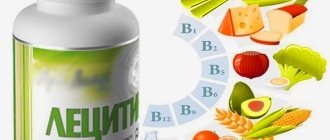Processed foods, such as prepared meals, baked goods, and processed meats, can have negative health effects. Most foods require some degree of processing, and not all processed foods are harmful to the body.
However, chemically processed foods contain high amounts of sugar, artificial ingredients, refined carbohydrates and trans fats. Because of this, these foods are a major contributor to obesity and disease worldwide.
In recent decades, consumption of processed food has increased dramatically throughout the world. These products now account for 25-60% of daily human consumption in many countries around the world.
Are sugar and salt harmful?
This is partly true, but not complete. Recent research suggests that an addiction to sugar, salt or animal fats is not as bad as a lack of vitamins, minerals and other nutrients in the diet.
The Global Burden of Disease study, published in the most authoritative medical journal, The Lancet, cast doubt on whether eating junk food poses the greatest danger. According to researchers, over the past year, 11 million more people in the world have died from a lack of healthy food than from eating unhealthy foods!
And this is a serious reason to think about whether we are doing the right thing when we limit the amount of salt, reduce sugar consumption or give up fast food, but do not give the body anything in return?
Important! Scientists are confident that even without giving up junk food, but by improving the consumption of healthy foods, you can significantly improve your quality of life and extend it by 7-10 years!
What are processed foods?
The term "processed foods" can cause some confusion since most foods are processed in some way.
Mechanical processing—such as grinding beef, heating vegetables, or pasteurizing foods—does not necessarily make foods unhealthy. If no chemicals or ingredients are added during processing, it does not reduce the nutritional value of the food. However, there is a difference between mechanical and chemical processing.
Chemically processed foods often contain refined ingredients and artificial substances that have little nutritional value. They add chemical flavors, dyes and sweeteners.
Some examples of processed foods:
- frozen and ready meals
- baked goods, including pizza, cakes and pastries
- packaged bread
- processed cheese products
- breakfast cereals
- crackers and chips
- candies and ice cream
- instant noodles and soups
- reconstituted meats such as sausages, nuggets, fish fingers and processed hams
- carbonated drinks and other sweetened drinks
Health effects of foods
Let's take a look at how addiction to unhealthy foods and lack of nutrients affect health and life expectancy.
- The dangers of eating junk food
According to statistics, 75% of people on our planet regularly abuse sugar and salt, consume too much animal fat and “fast” carbohydrates.
In addition, more and more people are self-medicating by taking medications (in particular, antibiotics) without a doctor’s prescription and without following the dosage. Let's not even talk about the craze for nicotine and alcohol.
The number of urban residents is growing exponentially, and these people are eating natural food less and less, preferring to buy vegetables and fruits in large supermarkets. We won’t reveal any secrets if we say that on an industrial scale such products are grown with the addition of pesticides and hormones. The appearance of vegetables and fruits turns out magnificent, but the beneficial properties leave much to be desired.

What do we get as a result? The walls of blood vessels become covered with cholesterol plaques, which threatens the development of hypertension, heart failure, heart attack and stroke. A person becomes overweight, develops fatty liver, decreases glucose tolerance and develops diabetes mellitus.
But what’s even more dangerous is that by being addicted to cigarettes and alcohol, as well as consuming foods grown with the help of herbicides and pesticides, every person exposes himself to the risk of cancer.
- The dangers of not eating enough healthy food
Scientists say we do ourselves much more harm when our bodies lack vitamins and minerals, protein, healthy fats and fiber. Here are some dangerous consequences caused by such a deficiency.
- A lack of vitamin A worsens the condition of the skin and provokes hair loss, but what is even more dangerous, leads to vision problems.
- A lack of B vitamins leads to anemia and neurological disorders. The group of these vitamins is also associated with rapid physical and mental fatigue.
- Vitamin K deficiency compromises the health of blood vessels, which lose elasticity and become too brittle. And this is a serious threat to human health and life.
- A lack of vitamin E threatens early aging. Statistics show that people who limit their consumption of this substance live 8-10 years less.
- Vitamin D deficiency leads to the development of rickets and childhood disability.
- Vitamin C deficiency is considered extremely dangerous. Its deficiency threatens to weaken the immune defense, and many diseases originate from here. For example, the lack of vitamin C provokes the development of a dangerous disease called scurvy.
- Lack of calcium provokes weakening of bone tissue, the development of osteoporosis and arthrosis. A person with this problem suffers from joint pain and frequent fractures.
- Low iodine levels lead to mental retardation in children and provoke disruption of the thyroid gland. And this is a direct path to hormonal problems.
- Magnesium deficiency leads to muscle cramps and critical loss of fluid in the body.
- A lack of potassium leads to heart failure and arrhythmia, risking sudden death from cardiac arrest.
- Refusal of carbohydrates threatens fatty liver degeneration and the development of non-alcoholic cirrhosis.
- Lack of chromium provokes a decrease in glucose tolerance and provokes the development of diabetes mellitus.
As you can see, a lack of vitamins and minerals in the diet can cause catastrophic harm to your health!

Principles

- Moderation. Don't overeat if you don't want to become obese. It is important to understand that even excessive fruit consumption can add pounds to your weight. This type of food should not be considered dietary. There must be moderation in everything. This principle indicates the prevention of obesity. However, it is also worth knowing that malnutrition also negatively affects health, especially psychological well-being. Therefore, you need to know your norm and stick to it.
- Diversity. If an individual consumes carbohydrates exclusively, then over time he will develop health problems. For example, if you eat rice cereal every day, you will notice how the condition of your hair, teeth, and nails has worsened. Lack of intake, for example, of magnesium contributes to problems in the functioning of the brain, heart, kidneys, and prolonged magnesium starvation can even lead to death. It is extremely important that a person’s diet is varied and includes a full range of substances valuable for the body. You also need to know that excess consumption of minerals and vitamins can also cause harm.
- Diet. It is necessary to understand that if you are used to eating at the same time, and then there is a failure in your regime, then gastric juice will begin to be produced at the usual hours, and since food does not arrive, over time this will lead to the development of gastritis, and then to an ulcer.
I am careful about what I consume, and I also monitor what my family members eat. It is extremely important for me that the diet is balanced, that the body of each loved one receives a sufficient amount of proteins, fats and carbohydrates, and that the daily diet contains all the necessary microelements and vitamins. I am for healthy eating because I know how it affects your well-being and overall health.
The diet and culture of modern man's diet
Today's food culture of modern man is far from ideal and this is mainly due to changes not only in the environment, but also in the way of life, the rhythm of which has noticeably accelerated.
But it is known that the food we eat in our body through numerous biochemical reactions is converted into vital energy. Apparently, this is why nutrition has a significant impact on human health.

For a balanced and rational diet, each person needs a correct diet with a zero energy balance, where equilibrium replenishment with quality food is equivalent to the consumption of energy reserves. Therefore, it is extremely necessary to know -
- what we eat
- why are we doing this?
- and when to eat.
The quality of food products today is rarely good, so you need to be able to choose a natural product from a large variety of counterfeit products. In addition, you also need to know what you can eat and what you definitely cannot eat.
What has a positive effect on our body, and what creates the negative consequences of daily addiction and mass attachment. Only extreme attention and thoughtful choice when purchasing fresh food, as well as the ability to combine different foods, can give you:
- food pleasure and a state of extraordinary lightness,
- bring the body good health and excellent mood,
- relieve chronic fatigue and prolonged depression,
- improve metabolic metabolism and ensure increased performance,
- improve health for many years and increase life expectancy.
Eliminate from your diet artificial and chemically harmful, quickly prepared foods that cause great harm to your health.
Try to eat more environmentally friendly and fresh natural products grown without the addition of chemical fertilizers and the use of artificial additives, which have:
- natural natural coloring,
- attractive appearance,
- appetizing taste and exquisite aroma.
As for the time of intake and amount of food, a light breakfast - 25% of food, best taken before 9 am. Eat the largest amount of cooked high-calorie food for lunch - 35% of the food, in the time interval from 12 to 14 o'clock in the afternoon.
Well, for the evening dinner - 15% of food, eat a small low-calorie portion of food at about 18-19 hours.
If your work is physically difficult, and the body quickly gets tired, noticeably losing vital energy, then you can add two small snacks between these meals - 25% of light food.
But you definitely shouldn’t overeat, loading your stomach especially at night, because your body shouldn’t work at night, digesting evening food. He definitely needs to rest.

As for the amount of food consumed at one time, its value should not exceed five hundred grams; only this amount can perfectly fit in the stomach of an adult.
The amount of fats, proteins and carbohydrates should be reduced by more than half, that is, the average calorie content of this food should not exceed 1700 kilocalories.
What is healthy food and how best to prepare it

All physiological processes occurring in the human body, such as:
- vital activity of the body and the functioning of vital organs,
- constant cellular growth and respiration ability,
- bone development and improved blood circulation,
- gaining energy and physical strength,
- mental and physical development,
- ability to work and respond to changes in the external environment,
- good health and good mood,
cannot occur without daily food intake, since it is the building material that lays a reliable long-term foundation in a living young organism.
It turns out that in order to be active and vigorous every day, it is important not only to eat right, that is, varied and balanced, but also to get the right healthy food, because it is this natural food that has a positive effect on a person.

Such human taste qualities as:
- sweet and salty,
- bitter and sour,
- burning and astringent
in the daily food you receive must be properly balanced, and its one-time quantitative consumption must fit into two of your palms.
So what is healthy food and how to prepare it correctly?
Healthy food, of course, includes the necessary and sufficient amount of fresh, carefully selected food products that contain all the water- and fat-soluble vitamins, minerals and trace elements necessary for the body -
- improving blood circulation and controlling the immune and nervous system,
- supporting acid-base balance and intracellular respiration,
- ensuring normal blood pressure and smooth metabolism.
Perhaps the most necessary for vital processes are:
- magnesium, iron and calcium,
- iodine, copper and selenium,
- manganese, phosphorus and water,
- retinol and thiamine,
- riboflavin and pyridoxine,
- tocopherol and phylloquinones,
- cyanocobalamin and calciferol.
All these beneficial substances, contained in fresh vegetables just picked from the garden and fruits plucked from branches, are the basis for longevity, and are found in such food products as:
- fresh vegetables and fruits,
- seasonal fruits and berries,
- grains and legumes,
- lean meat and sea fish,
- poultry eggs and cow's milk,
- nuts and leafy greens.
These most important food products must not only be rationally combined and balanced in a variety of ways, but also used in accordance with the season, most importantly, cooked correctly. It is best, of course, to steam your daily food in a double boiler, because it is considered healthier this way, since all the beneficial substances are preserved in it.
Another way of cooking is also stewing and baking. But perhaps the most common heat treatment in everyday life is boiling in water.
However, it is worth considering that high heat treatment of food products reduces the amount of valuable substances in them, and as you know, healthy fresh food also regulates the fluid balance in a living organism, which maintains normal thermoregulation of the whole organism.
After all, as we know, the human body is the most highly developed in nature, which means that every minute the most complex biochemical processes take place in it, requiring high-quality food.

It is this high-quality food fuel, with a sense of proportion, that can have a beneficial effect on the general state of human health.











